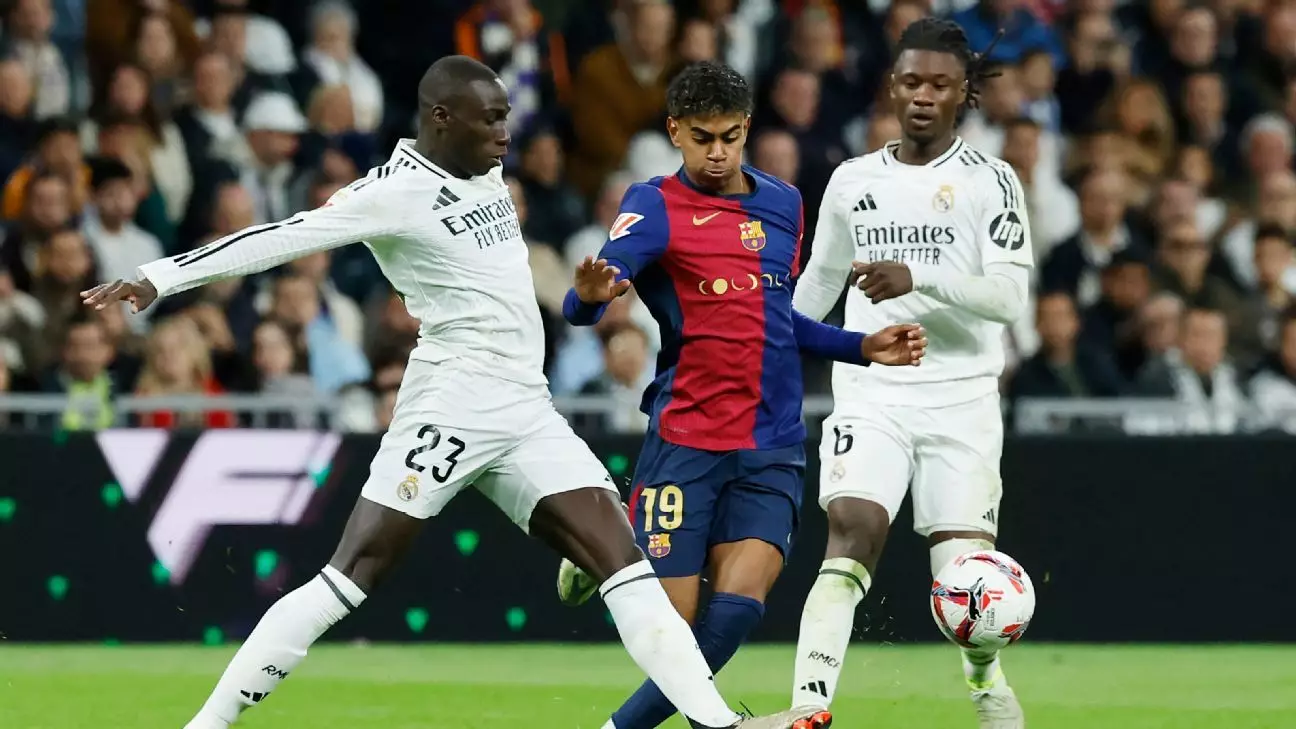In a significant move towards combating racism within sports, Spanish authorities have made three arrests linked to a case of racial abuse directed at Barcelona players Lamine Yamal and Raphinha during the infamous Clásico match at the Bernabéu last month. The game, which saw Barcelona triumph with a 4-0 victory, should have been a cause for celebration, but instead ended in disgrace as the athletes were subjected to xenophobic taunts from certain sections of the crowd. The confirmation of these arrests from police officials demonstrates a commitment to addressing such egregious behavior within the realm of football.
The organization’s engagement stems from a complaint lodged by LaLiga, which included video recordings and the expertise of a lip-reading specialist to substantiate the claims of racial abuse. The league’s proactive stance is indeed commendable and marks just the latest chapter in a broader narrative of increased scrutiny and tougher measures against racism in football Spain. This is not merely an isolated incident but rather part of a persistent and troubling phenomenon that has plagued the sport.
The Need for Systematic Change
Over the last few months, reports have surfaced documenting numerous instances of racing-related abuse directed at players, raising questions about the effectiveness of existing measures and the overall environment in football stadiums. Vinícius Júnior’s statements underscore an ongoing plight many athletes face from biased sentiments rooted deeply within societal structures. Since his arrival in Spain in 2018, Vinícius has opened up about his harrowing experiences, emphasizing that while there have been advancements in identifying offenders, the emotional toll remains.
The systemic nature of racism in sports cannot be ignored. Previous incidents involving fan abuse have led courts to implement sentences against the perpetrators, as seen with Valencia supporters receiving jail time for racially abusing Vinícius. These verdicts, while significant, are arguably just the beginning of an urgent need to foster a culture of zero tolerance in football.
LaLiga’s president, Javier Tebas, has echoed the urgent need for strict consequences against fans participating in hateful conduct, suggesting harsher penalties as a deterrent. Tebas’ call for prison sentences reflects a growing consensus that merely condemning racism is inadequate; the system must evolve to prioritize accountability. The pathway to meaningful change lies in comprehensive education on diversity and inclusion, which should be embedded within clubs, leagues, and fan communities alike.
In this context, Vinícius also emphasized the necessity for collective action against racism, urging fans and contributors to the football community to hold themselves responsible. His condemnation of the horrific behavior directed at Yamal and Raphinha serves as a testament that prominent figures in football are beginning to unite in the fight against discrimination. Creating an environment where players can perform without the fear of racial abuse is essential for fostering sportsmanship and fair play.
The ongoing efforts of LaLiga to combat racism highlight the importance of institutional commitment in effecting cultural change. It becomes imperative for governing bodies, clubs, and fans to champion initiatives promoting understanding, respect, and inclusivity. Fans play an undeniable role in shaping the experience of the game, and nurturing positive engagement is essential for dismantling discriminatory attitudes.
The situation surrounding the recent arrests serves as a cautionary tale—reminding us that tolerance for racism must not be allowed to pervade sports. Addressing these issues head-on can foster a healthier football environment, one where diversity is not just accepted but celebrated. The responsibility extends beyond the players and authorities; it is a collective duty of all stakeholders involved.
The arrests linked to the recent racist incidents during the Clásico not only illustrate the ongoing battle against racism in football but also signal a potentially transformative shift in how society responds to such abhorrent behavior. As the football community rallies together against discrimination, there is hope that meaningful change will follow, paving the way for a future where sportsmanship transcends all barriers of race and prejudice.

Leave a Reply